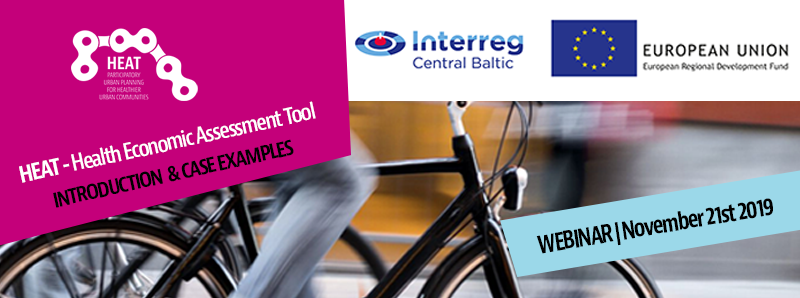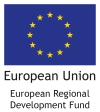
The WHO HEAT tool – Introduction and case examples
A webinar on user experiences of applying the Health Economic Assessment Tool (HEAT)
Join project HEAT on their first webinar!
When? November 21st 2019 | 14:00-16:00 (+2UTC)
Programme
- HEAT Tool use in urban planning and future views in the development work Nick Cavill, WHO HEAT Core Group/ Cavill Associates Ltd.
- Master planning in Tartu and the use of HEAT Tool calculations Indrek Ranniku, City of Tartu
- HEAT Tool use in Stockholm Region Emilia Sternberg, Cykelfrämjandet
- Trying out the HEAT Tool as a part of regional traffic system planning Marja Tommola, Valonia (The Regional Council of Southwest Finland)
- Using the HEAT-tool and Bikenomics analyses as a backbone for long-lasting change Oskari Kaupinmäki, City of Helsinki
- Questions and discussion
How to sign up and participate?
→ Sign up here
The webinar is brought to you with Skype for Business. If you don’t have the programme installed on your computer you can participate via the Skype For Business Web App. Using the Web App requires installing an extension – please check with your IT department that extensions are allowed on your computer. N.B.! Some problems may be experienced in joining the webinar when using the Google Chrome browser. To avoid any problems we recommend using another browser.
Additional information:
Heli Kanerva-Lehto
Project coordinator, Turku University of Applied Sciences
Heli.Kanerva-Lehto@turkuamk.fi


